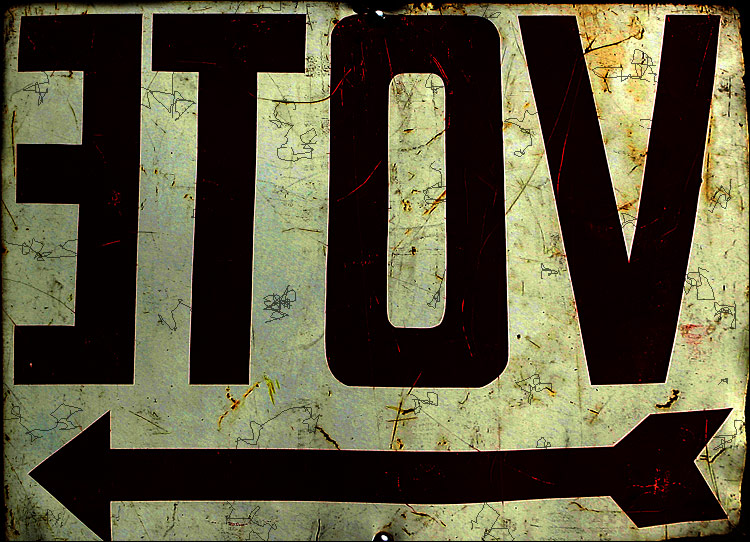There are many preparing to put TV back on its pedestal thanks to the perceived influence of the Leader's Debates on tomorrow's (May 6, 2010) UK general election.
But just before we get too excited by a resurging all-powerful broadcast medium, let's pause to think about what's going on here.
The leaders debates have acted as social objects. There are many more people who have been influenced by the conversations of their peers in response to the debates than can possibly have been influenced by watching the debates directly themselves. (Image courtesy Dean Terry)
Influence in isolation is a tough ask. We derive our understanding, our opinion of, our view of - our emotional response to, the leaders debates not through our direct individual experience of them, but through our social interactions with those around us.
The value of a social object is in the interactions it inspires - far beyond that first-generation direct encounter between user and object that we had broadcast at us in our lounges.
Don't believe me? Then why does one group see David Cameron 'winning' a debate while another calls it clearly for Gordon Brown? The content was the same for both sets of observers. The qualities of the social object are not intrinsic in it; they are extrinsic in our response to it (recommendation is in the eye of the receiver). The qualities of the social object are generated by our social interactions.
Which is why the biggest impact on the election result is in the interaction between peers - made so rapid and easy by the social tools at our disposal.
It is not TV wot won it - victory, if it derives from anywhere, is overwhelmingly to be found in social media's ability to connect and amplify our social selves. The ubiquity and simplicity of those tools is what has changed since previous elections.
So it was Twitter wot won it, it was Facebook wot won it. It's your friends wot won it.
We're all publishers now, My Sun.


![Reblog this post [with Zemanta]](http://img.zemanta.com/reblog_e.png?x-id=85cb264d-f98c-4f39-9ed4-e8974f88f557)
I agree. I started watching the first debate on TV, but got bored after half an hour and went to play games on Facebook. Then I decided to look online to see what is happening with the debate. I found the ITV page showing the debate and the live Facebook feed. The Facebook feed was intersting. That's what made me watch the rest of that debate and the next two. I'm hoping I can find something similar for the resutls tomorrow. The comments of others and your ability to respond create the energy and excitement, whether you agree with them or not. The sense of something happening, the potential for change.
ReplyDeleteAgree as well but I also can't help feeling their has been a massive failure from the politicians. The efforts of candidates to connect, engage and ultimately persuade via social media on a local level have been non existent or at best absolutely woeful. Instead the main parties have tried to apply their usual broadcast tactics digitally and in so doing have failed to reach out and resonate with a large number of people in a number of demographic and geographic segments. A huge missed opportunity for all the parties particular in a system where we are currently supposed to be electing a parliament and not a prime minister
ReplyDelete